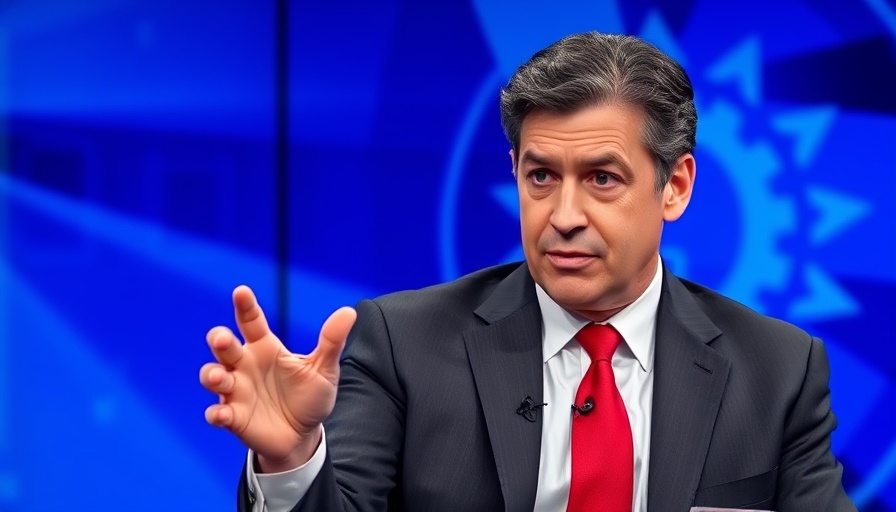
A Call to Arms or a Misguided Crusade?
On a recent broadcast, Fox News host Jesse Watters launched a fervent attack on Zohran Mamdani, the Democratic nominee for New York City mayoral election, labeling him a "communist" and demanding the revival of anti-communist measures reminiscent of Joe McCarthy's notorious era. This escalation unveils a troubling trend in modern political discourse where reason is cast aside in favor of exaggerated and polarized rhetoric.
The Rise of Political Extremism
Watters’ comments highlight a growing concern regarding political extremism in the U.S., where opponents are often depicted in extreme terms. By branding Mamdani's democratic socialist views as akin to communism, Watters not only distorts the political landscape but stokes fears around immigration and social reform. Mamdani, who has openly identified as a Democratic socialist, argues for policies aimed at social equity and community empowerment—ideas that resonate with many New Yorkers. However, Watters’ rhetoric paints these sentiments as radical, a tactic that could alienate significant portions of the electorate.
Contextualizing Democracy in America
Watters vocalized a sentiment that seems to undermine the essence of democracy itself—a system built on diverse opinions and majority rule. He claimed, "What kind of democracy is that?" suggesting that opposing viewpoints should not be allowed to shape electoral outcomes. This stance poses a fundamental question about the nature of democracy: Should it be defined as a strict majority rule, or should it embrace a kaleidoscope of perspectives? Engaging in constructive dialogue rather than demonizing opposing viewpoints could fortify—not weaken—the democratic process.
Immigration and Political Narratives
Furthermore, Watters' assertion that "unchecked immigration" led to the rise of so-called radical candidates underscores a prevalent, yet misleading narrative in political rhetoric. By blaming immigrants for the electoral success of candidates like Mamdani, a larger pattern emerges where marginalized communities are scapegoated to serve a political agenda. It's crucial to remember that democracy thrives in diversity, and it's often the voices from these communities that challenge the status quo and push for much-needed reform.
The Echoes of History
Referencing Joe McCarthy conjures a cautionary tale about the consequences of fear-mongering. McCarthy's era was marked by a witch hunt that persecuted countless innocent individuals within the political sphere. Invoking McCarthyism today signals a potential return to intolerance where dissenting voices could be silenced under the guise of ‘protecting democracy.’ Such references require careful interpretation, as they echo the dangers of historical injustices in today's polarized climate.
Conclusion: Satire or Serious Warning?
As the political landscape becomes increasingly contentious, it's essential for civil rights and immigration attorneys to navigate the complexities of these narratives. Engaging with local communities and understanding their perspectives will not only aid in legal advocacy but also bridge societal divides exacerbated by incendiary rhetoric. In understanding the roots of these discussions, legal professionals can contribute to more informed and fruitful dialogues around immigration and social justice, ensuring that the rights of all individuals are preserved amidst the chaos of political strife.
As advocates for justice and equality, taking action means challenging distorted narratives and ensuring that diverse voices are not just heard but actively included in the ongoing conversation about our democracy.
 Add Row
Add Row  Add
Add 




Write A Comment